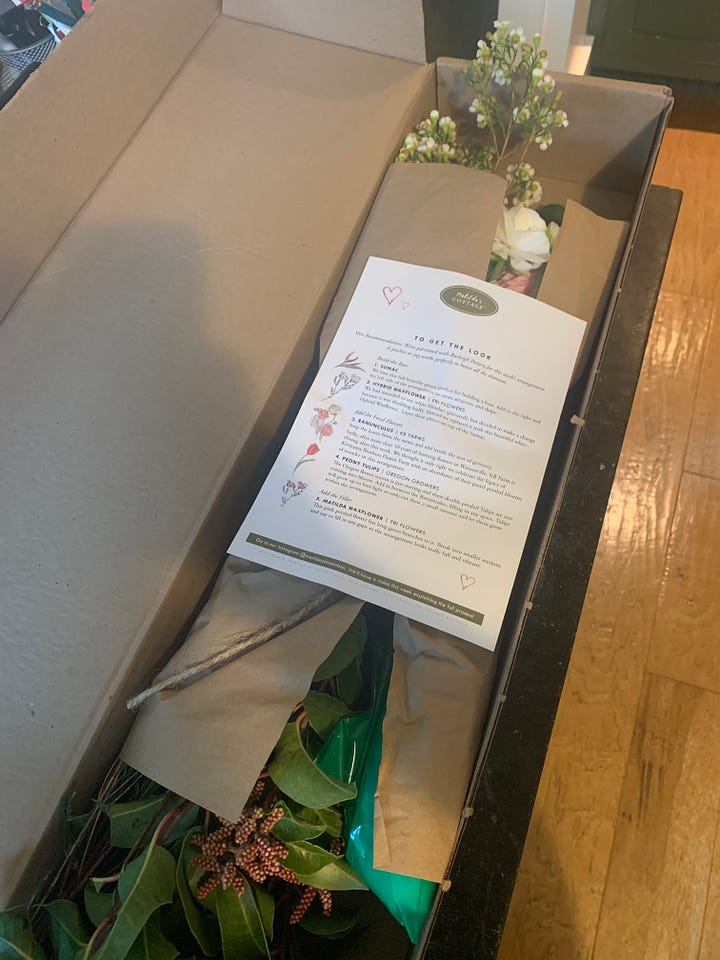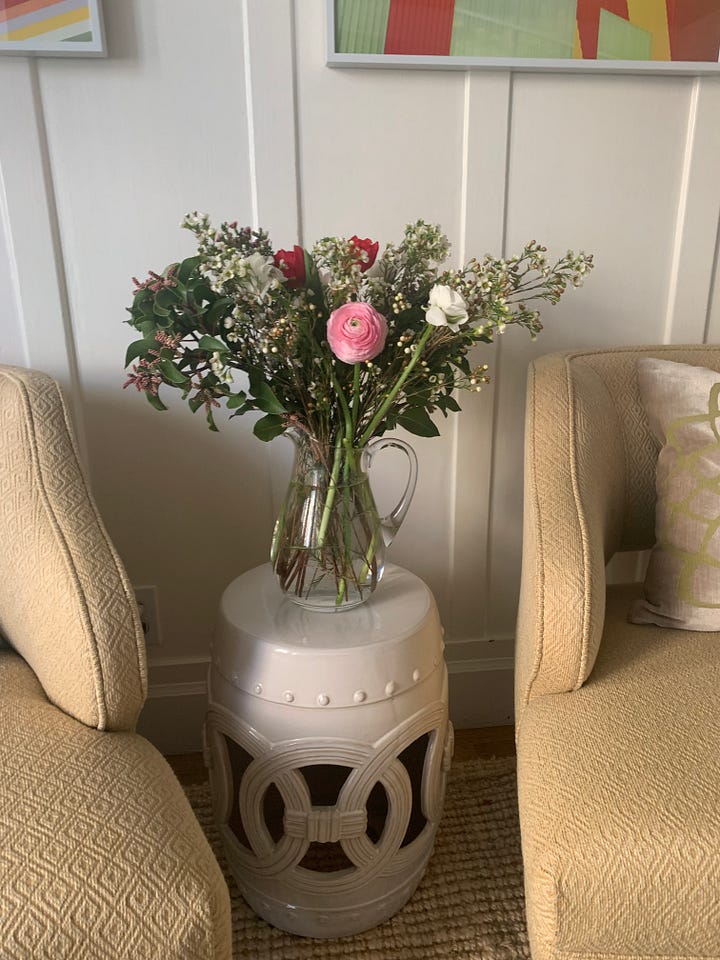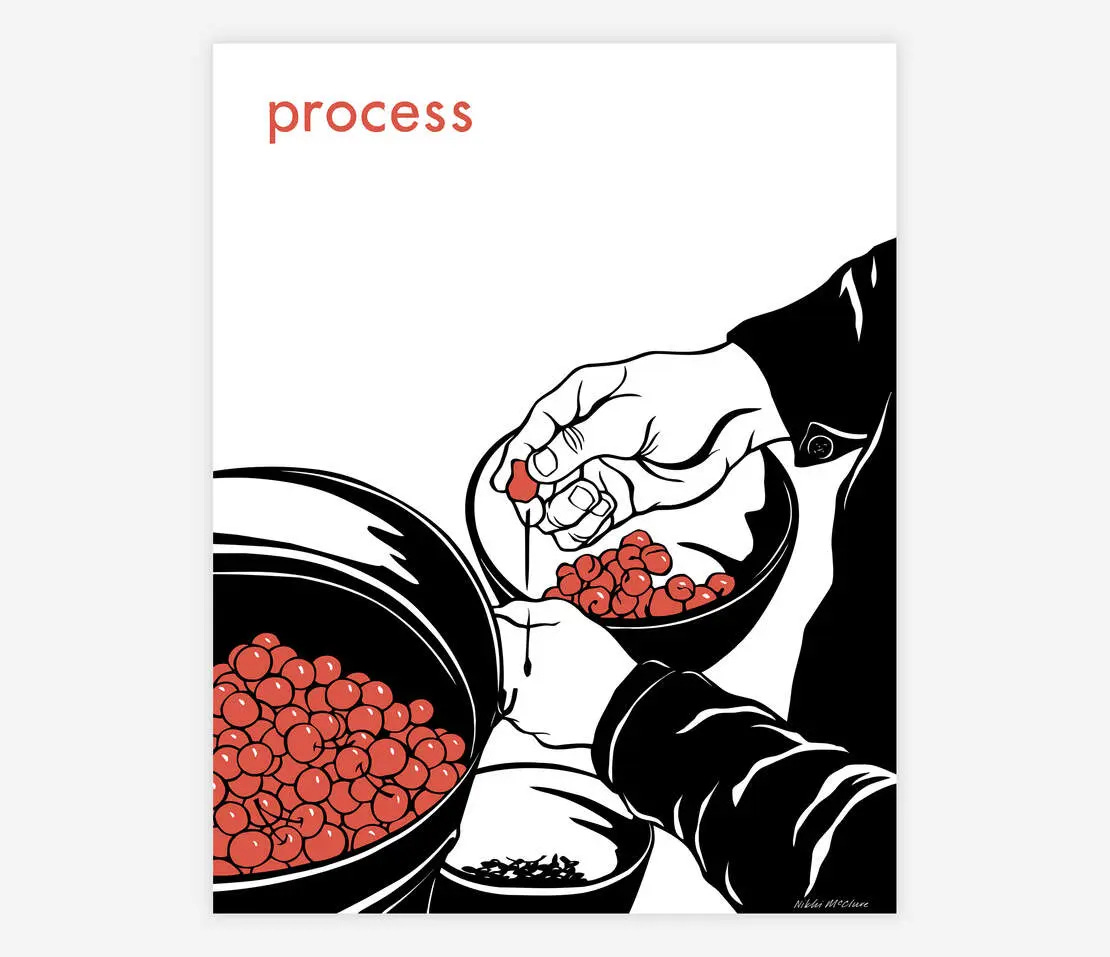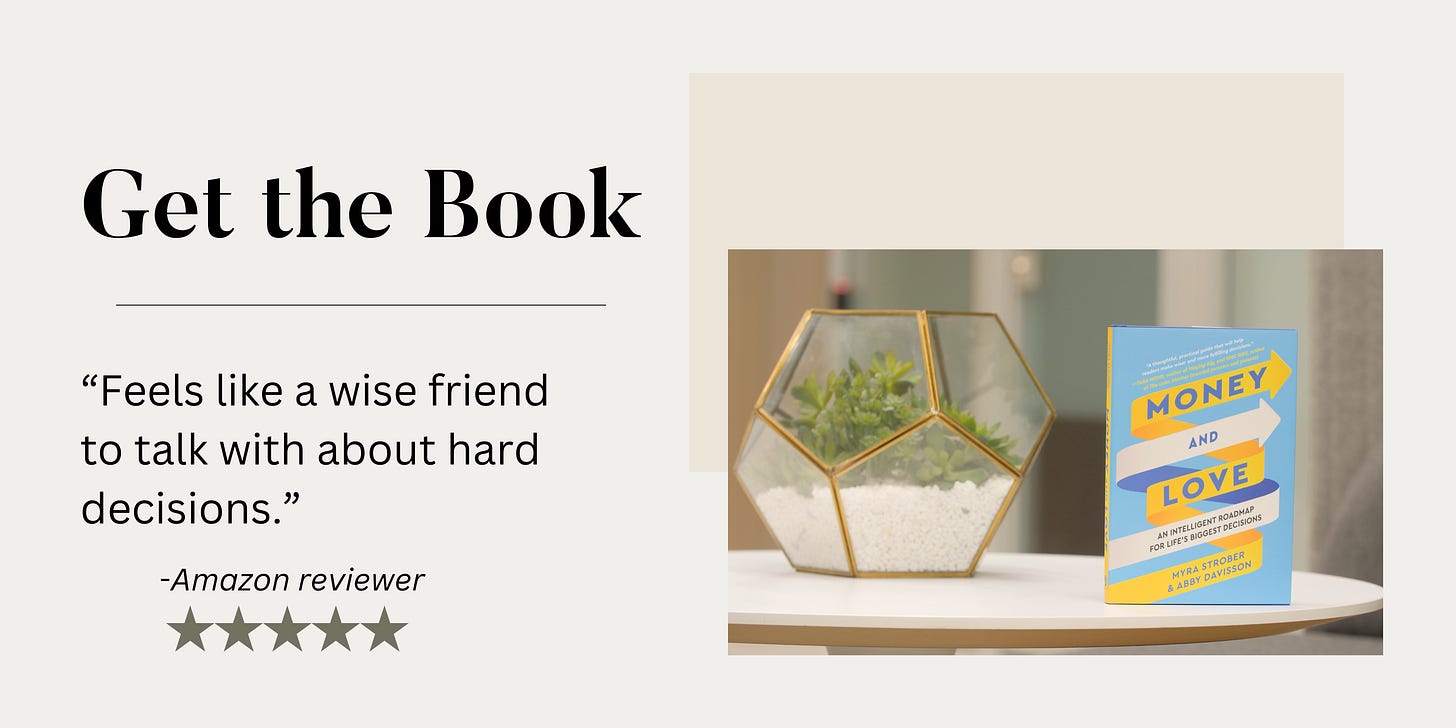A Love Letter to Process
Or, how I learned to stop worrying about the end and embrace the means
I’ve always liked quantifying and measuring things. It’s why I enjoy baking; hitting my daily step goal1; and diving into the analytics of Substack posts.
It’s also one reason middle school Abby liked grades. To my twelve-year-old mind, grades measured how well you learned.
I got good grades in school, and I was praised for them.2 I quickly internalized that beyond measuring learning, getting good grades made me feel good.
My grades, privilege, and luck (and an essay about socks) helped me get into Yale, where I also got good grades. I was inducted into Phi Beta Kappa my junior year, and I was even named a student marshal at commencement — an honor bestowed on the male and female graduate of each residential college with the highest GPA.3
After college, I worked in management consulting, where performance reviews were the new grades and financial compensation was distributed accordingly.
By then the grooves of my results-orientation were well-worn, and I knew what to do to succeed.
I share all this not to boast (truly!) but to illustrate how firmly the idea of achieving goals was imprinted on me, and how persistent it remained throughout the first decades of my life and career.
Being goal-oriented served me well — until it didn’t. At some point, my laser-like focus on results started to get in my way.
As the saying goes “what got you here won’t get you there.”
I haven’t been able to completely detach from outcomes, and I’m still a worrier.4 But I’ve done a lot of deliberate work and unlearning over the last decade or so, and I’ve made a lot of progress.
I know I’m not alone in my attachment to results, so I’m sharing a few insights that have helped me intentionally embrace the process over the outcome.
The process makes you value the outcome more highly
The authors of a famous 2011 research paper coined the term “the IKEA effect,” named after the Swedish manufacturer of furniture that requires assembly.
It means people place more value on things they’ve made themselves.
This phenomenon held true across multiple studies, whether the “things” involved were IKEA furniture, origami animals, or Lego sets.5
My experience with a local flowery delivery service called Matilda’s Bloombox has convinced me of the validity of the IKEA effect.
Q: What’s better than getting a bouquet of fresh flowers delivered?
A: Getting a box of fresh floral stems delivered and assembling the bouquet yourself!
The photo below on the left is what a Matilda’s box looks like when it gets delivered. On the right is the bouquet I made after arranging the contents of the box according to the instructions.


I became enamored with Matilda’s during the height of the pandemic. I love fresh flowers, and bi-monthly Matilda’s deliveries became an indulgence I looked forward to during a time of tremendous stress.
Sure, pre-arranged flowers would have been a time-saver. But I lived for the fifteen minutes of zen I experienced while arranging my bouquets (another example of deliberate friction).
Plus, whenever I walked by the finished product (which was often, since I was home all the time), I’d get an extra boost of happiness seeing my arrangement.
Getting a Bloombox delivery is now a special occasion indulgence — the photos above are from this year’s Valentine’s Day gift (thanks, Ross!).
Knowing about the IKEA effect has helped me see the value in intentionally investing in the process.
The process is the point
Early on in my parenting journey, I often found myself wanting to skip to the end of a specific phase that I found particularly tiresome. I wished I could to skip directly to…
…the end of sleep training.
…the end of having to baby proof our house.
…the end of potty training.
…the end of being tethered to a nap schedule.6
One day, I was commiserating with a mom friend about the many tough phases of early parenting. My younger son was still a baby and we were potty training our toddler. I mentioned my eagerness to skip to the end of potty training.
She replied, “Yeah, I find myself wanting to skip ahead sometimes, too. But then I remember, the process is the point. I wouldn’t want to fast forward until my kids are 18 and moving out of the house…so I try to make myself remember to enjoy the process.”
That phrase changed my entire perspective in an instant: the process is the point.
It’s become a parenting mantra for me — something I repeat when I find myself wanting to skip ahead (the teenage years are looming…you can bet I’ll have my mantra at the ready).
This isn’t limited to just parenting. For every mountain we summit, we spend the vast majority of time climbing the sides.
In so many cases, the process is the point.
You can’t control the outcome; you can control the process
One challenge with being results-oriented is that in so many cases, the outcome is out of my control. Life throws us curveballs, and we can’t predict how things will turn out. All we can control is the process.
For many years, I was guilty of what
calls “resulting” — equating the quality of a decision with its outcome. If a decision turned out well, it was a good decision. If things went sideways, it was a bad decision.This would cause me to fret over big decisions, second-guessing my choices until I knew how the decisions “turned out.”
Shifting to focus on the quality of my decision-making process — not the outcome of a particular decision — changed everything for me.
The backbone of my book, Money and Love: An Intelligent Roadmap for Life’s Biggest Decisions, is a flexible but sturdy framework, informed by research and experience, that ensures a high-quality decision-making process.
(They say you write the book you most need to read.)
Here are just a few of the decisions that I (in partnership with my husband) have made in the last three years using the framework in my book:
Staying in our house in the city instead of moving to a bigger house in the suburbs
Switching our kids to a different school in the city
Leaving my dream job to launch a book and start a company
Before using my framework, I would have been a giant ball of stress about any one of these decisions after making it. After using my framework, I feel confident about all of the decisions, even though the outcomes aren’t yet clear.
I choose to focus on what I can control. I can’t control the outcomes. I can control the process.

Abby’s Latest
I’m still doing a No New Things Challenge in February (I haven’t slipped yet!). But I can’t resist sharing my 2023 Valentine’s Day gift because it’s been one of the MVPs of our kitchen over the last year.
We both love frothed milk drinks (matcha lattes for me, regular lattes for him). After dropping way too much at the Peet’s Coffee down the street from us, I started making lattes at home. But our electric milk frother didn’t get the milk hot enough for my tastes.
Ross did some research and last Valentine’s Day, he presented me with a Bellman Stovetop Milk Steamer. It was a bit daunting to use at first, but now we love it. We’ve taken it with us on numerous road trips, and we rarely visit Peet’s anymore.
It takes a while to heat the water on the stovetop, but that’s part of the process. I heat the water, froth the matcha, prepare the steamed milk, and enjoy my drink that tastes extra delicious, courtesy of my perfectly hot milk…and the IKEA effect.
Deliberately yours,
Abby
7K, if you’re wondering.
I don’t blame my parents; Carol Dweck’s book Mindset didn’t come out until well after I graduated from college.
For this honor, I got to carry a wooden baton at graduation, which my friends affectionately called my “nerd stick.”
The subhead of this post is more art than fact — a nod to Dr. Strangelove, a fantastic movie
We were strict about having our kids nap in their own beds to develop good sleep habits, so we’d often find ourselves dashing home ahead of naptime, tickling our toddler so he wouldn’t fall asleep in the stroller or carseat. Sometimes we failed.







"This isn’t limited to just parenting. For every mountain we summit, we spend the vast majority of time climbing the sides."
It is the truth, so much time on the sides. I love this image.
"The process is the point." I love this so much!